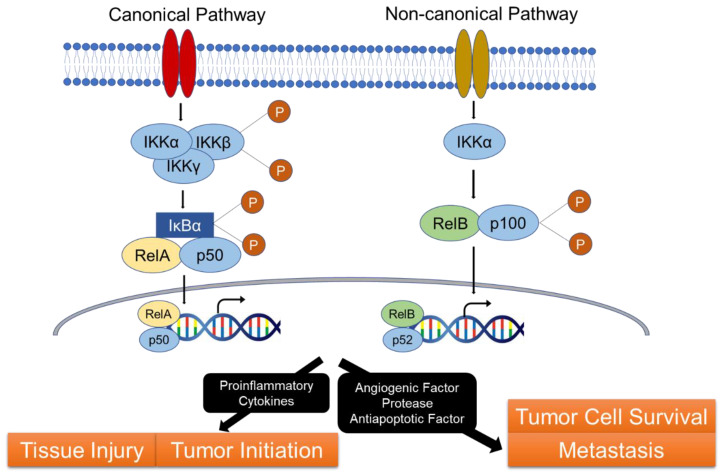Figure 2.
NF-κB pathway and inflammatory-associated carcinogenesis. NF-κB is involved in IBD pathogenesis. NF-κB signaling includes two pathways (the canonical and non-canonical pathways), and NF-κB forms a complex with the inhibitor IκB in the cytoplasm in both pathways. Activation of the canonical pathway results in phosphorylation of IκBα by the IκB kinase (IKK) complex. This leads translocation of RelA/p50 into the nucleus, and activation of the transcription of target genes. Activation of the non-canonical pathway leads the degradation of the p100 to p52. The p52-RelB complex translocates into the nucleus and leads the transcription of target genes. This pathway is involved in the pathogenesis of IBD. It is also involved in the carcinogenesis with cytokine-induced tissue injury, tumor initiation, and tumor progression.

